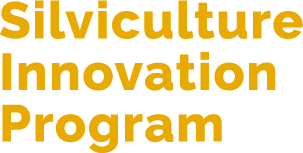-
Early Effects of Manipulating Aspen Density on Lodgepole Pine Performance Aspen Sucker Production and Stand Development in the IDFxm Subzone Near Williams Lake B.C.
This technical report evaluates the early effects of manipulating trembling aspen density on the development of lodgepole pine stands within the dry Interior Douglas-fir zone of British Columbia. By establishing an experiment near Meldrum Creek, res...This technical report evaluates the early effects of manipulating trembling aspen density on the development of lodgepole pine stands within the dry Interior Douglas-fir zone of British Columbia. By establishing an experiment near Meldrum Creek, researchers analyzed how different levels of aspen retention impacted conifer growth, vigor, and survival over a four-year period. The study found that while thinning immediately altered the stand structure and reduced aspen basal area, it did not yet yield significant improvements in pine performance, likely due to the young age of the trees and slow growth rates in this climate. Additionally, the report explores the competitive neighbourhood, identifying that aspen within a one-meter radius are the most influential competitors, while also noting that higher aspen retention may help suppress the density of new suckers. This research serves to refine competition thresholds and provide forest managers with biological data to optimize mixedwood management and free-growing guidelines in the region. -
Silviculture Strategies to Support Mature and Old-Growth Forest Conditions Across Diverse Ownerships
This webinar explores silvicultural options for managing for mature and old-growth forest conditions across a range of forest and ownership types in the US. The consistency of these strategies with other objectives and programs tied to biodiversity c...This webinar explores silvicultural options for managing for mature and old-growth forest conditions across a range of forest and ownership types in the US. The consistency of these strategies with other objectives and programs tied to biodiversity conservation, climate mitigation, and forest adaptation are discussed. -
Operationalizing Adaptive Silviculture for Climate Change
This webinar discusses operationalizing adaptive silviculture for climate change through a multi-site research network. The core purpose of the project is to provide forest managers with real-world, operational examples of integrating climate change ...This webinar discusses operationalizing adaptive silviculture for climate change through a multi-site research network. The core purpose of the project is to provide forest managers with real-world, operational examples of integrating climate change adaptation principles into practice, specifically by fostering ecosystem resilience to uncertain futures. The research employs a consistent framework across various forest types, testing three primary adaptation strategies including resistance, resilience, and transition. The webinar details the work at the Minnesota pine site, highlighting local climate vulnerability to drought and the application of these three treatments: simple thinning for resistance, mixed-species restoration for resilience, and aggressive transition management using both native and novel, future-adapted species like Ponderosa pine. -
Adaptive Silviculture for Climate Change - Lessons for Timber-Oriented Managers
This webinar focused on adapting timber management practices to environmental shifts. The webinar establishes the urgent need for adaptation by detailing regional climate projections, including rising temperatures and increased summer drought frequen...This webinar focused on adapting timber management practices to environmental shifts. The webinar establishes the urgent need for adaptation by detailing regional climate projections, including rising temperatures and increased summer drought frequency, which pose significant threats to traditionally managed commercial species like Red Pine. The framework consisting of Resistance, Resilience, and Transition strategies is introduced, demonstrating how varying levels of silvicultural intervention, from thinning to mitigate drought to planting novel species via assisted migration, can reduce climate vulnerability. The central purpose of the discussion is to convince land managers that they can implement these science-backed silvicultural actions to sustain forest productivity and commercial value despite increasing ecological risks. -
Silvicultural Systems
This webinar details the core concepts of silvicultural systems, which are comprehensive approaches to forest management defined by three continuous elements: regeneration, tending, and harvesting. These systems are structured along a practical spect...This webinar details the core concepts of silvicultural systems, which are comprehensive approaches to forest management defined by three continuous elements: regeneration, tending, and harvesting. These systems are structured along a practical spectrum of harvest intensity, starting with low-disturbance selection methods suitable for shade-tolerant species and culminating in high-intensity treatments like clearcutting, which favor light-demanding species. The choice of technique, such as the multi-step shelterwood method or the more localized seed tree method, depends entirely on the desired future condition of the stand and the ecology of the target tree species. Successful silviculture is presented as both a science and an art, requiring creative application of various treatments, including intermediate thinning, to achieve specific outcomes. -
Integrating Ecosystem Restoration into Forest Management Practical Examples for Foresters
This core purpose of this document is to present ideas and case studies demonstrating how to integrate ecological restoration into routine forest management practices to enhance biodiversity, reduce risks, and achieve sustainable certification. This ...This core purpose of this document is to present ideas and case studies demonstrating how to integrate ecological restoration into routine forest management practices to enhance biodiversity, reduce risks, and achieve sustainable certification. This document outlines key ecological issues, such as landscape fragmentation and the loss of natural stand structural elements, and details corresponding restoration approaches across eleven distinct case studies, from restoring open forest and open range through commercial thinning to mitigating road impacts and restoring riparian habitat integrity. Finally, the document prioritizes specific forested ecosystems with high priority restoration needs in BC, offering tailored solutions for zones like the Interior Douglas-fir and Coastal Western Hemlock. -
Commercial Thinning Experiments in the Horsefly Forest District
This document is a detailed report summarizing a commercial thinning experiment in the Horsefly Forest District in British Columbia. The primary goal was to assess the operational feasibility of commercial thinning as an alternative silviculture trea...This document is a detailed report summarizing a commercial thinning experiment in the Horsefly Forest District in British Columbia. The primary goal was to assess the operational feasibility of commercial thinning as an alternative silviculture treatment, particularly focusing on developing higher-valued timber stands. The report delves into numerous technical and environmental issues, including desired crop tree characteristics, hydrological stability, and windthrow and snow-damage, backed by exhaustive production reports from the harvesting machinery and detailed snow breakage and crown growth surveys. The study concluded that commercial thinning is an operationally viable option within the Cariboo Forest Region, providing continued access to merchantable stands. -
Malcolm Knapp Research Forest
The Malcolm Knapp Research Forest mission is to provide a world class environment for research and education in forestry and allied sciences. It is located near Maple Ridge and is close enough to UBC campus for students to visit for field trips or pr...The Malcolm Knapp Research Forest mission is to provide a world class environment for research and education in forestry and allied sciences. It is located near Maple Ridge and is close enough to UBC campus for students to visit for field trips or project work. The UBC Malcolm Knapp Research Forest has a thriving research community which includes professional researchers and students from several UBC faculties, from Simon Fraser University, from BC's provincial government, and from the Canadian federal government. Since the establishment of the Research Forest, over 900 research projects have been initiated on the land-base, and more than 100 of these are still active. Many of these active projects are long-term in nature, spanning close to 50 years and including some of the most extensive datasets in western North America. While the majority of the projects focus on different aspects of forestry and forest management, several of the more recent projects touch on other, unrelated fields, such as astronomy and forensic entomology. The last 10 years has seen a shift in the focus of forestry research, from projects looking predominantly at maximizing growth and yield in managed forests, to projects which are more concerned with measuring impacts of different forest practices on the ecology of our forests. Studies of growth and yield continue, however, and these projects include some of the longest datasets the research forest has. For a full list of research projects being pursued at the Research Forest, please check the Research Projects Database found at https://rpd.forestry.ubc.ca/auth -
Alex Fraser Research Forest
The Alex Fraser Research Forest is located near Williams Lake and showcases sustainable forest management practices in a range of forest ecosystems of the B. C. Interior. It provides long-term site security for research projects, inexpensive research...The Alex Fraser Research Forest is located near Williams Lake and showcases sustainable forest management practices in a range of forest ecosystems of the B. C. Interior. It provides long-term site security for research projects, inexpensive researcher accommodation, and an outdoor classroom for both education and demonstration. -
John Prince Research Forest
John Prince Research Forest (JPRF) is a unique institution, envisioned, initiated and managed cooperatively between Tl'azt'en First Nation and the University of Northern British Columbia. Developing innovative approaches to natural resource conservat...John Prince Research Forest (JPRF) is a unique institution, envisioned, initiated and managed cooperatively between Tl'azt'en First Nation and the University of Northern British Columbia. Developing innovative approaches to natural resource conservation and management that combines First Nations' traditional and western scientific approaches to understanding the natural world, is what makes John Prince Research Forest special. Located in the dry sub-boreal spruce biogeoclimatic zone of the Nechako Plateau, the northernmost subdivision of BC' s Central Interior Plateau. The JPRF falls within the moist interior natural disturbance unit, characterized by large wild fire stand replacement events typically on a 100-200 year cycle. The natural forest types are an uneven-aged mix of Douglas-fir, spruce, pine, subalpine and deciduous types. These highly productive northern forests have distinctive understories of rose, spirea, soopallie, cranberry, thimbleberry, red osier dogwood, black twinberry, devil's club and huckleberry varieties. Explore John Prince Research Forest publications at: https://www.jprf.ca/research -
Silviculture Innovation Program
The SIP vision is that there is an accelerated growth of innovative silviculture by improving knowledge of these systems in British Columbia using research and extension. The SIP integrates both extension and knowledge creation to create impactful re...The SIP vision is that there is an accelerated growth of innovative silviculture by improving knowledge of these systems in British Columbia using research and extension. The SIP integrates both extension and knowledge creation to create impactful resources for forest practitioners. Using collaborative partnerships with communities and practitioners, we support diverse perspectives to fill critical knowledge gaps, enhance access to knowledge, and facilitate knowledge exchange.


